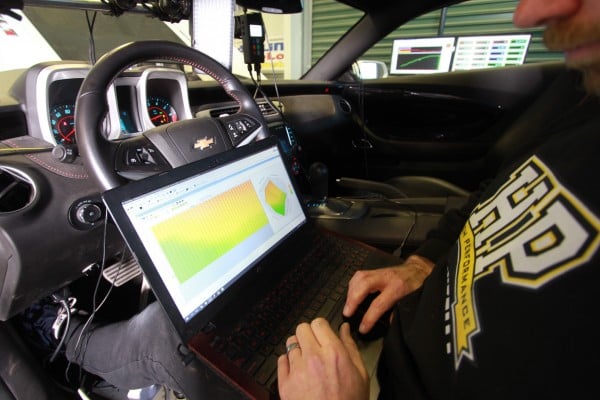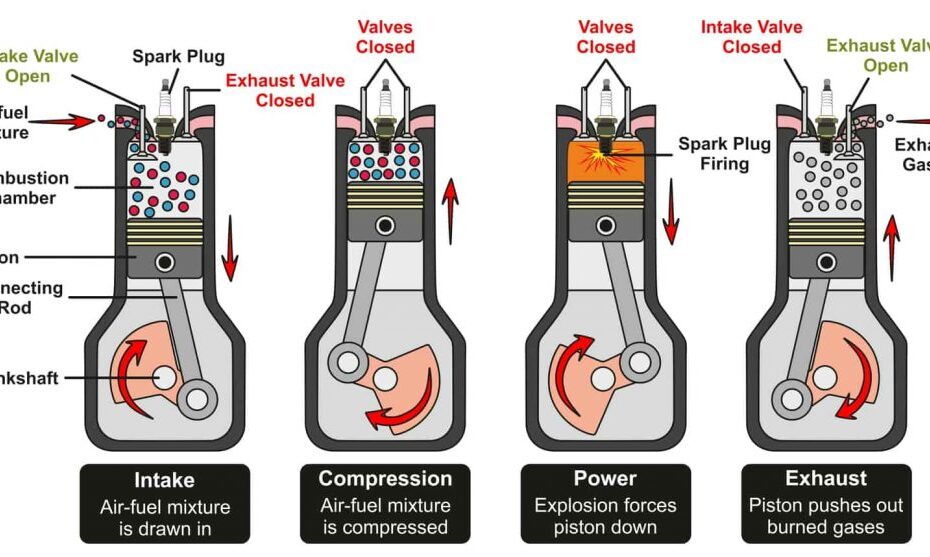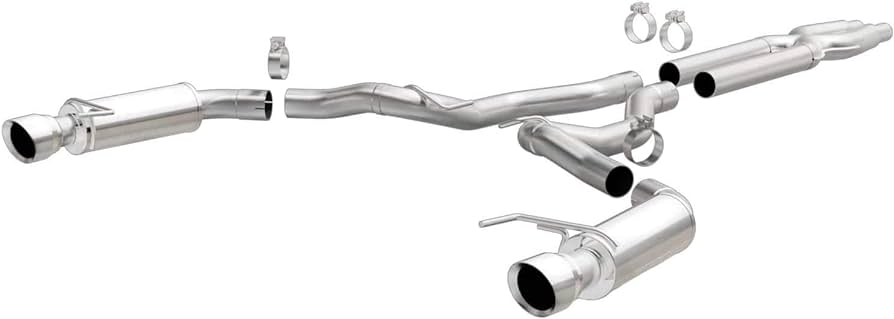To tune a car, adjust settings in the engine control unit for optimal performance. This process enhances power and efficiency.
Tuning a car involves modifying the engine to improve its performance, fuel economy, and overall driving experience. Whether you want to increase horsepower, upgrade your exhaust system, or improve the intake system, tuning allows you to customize your vehicle to your preferences.
It focuses on maximizing your engine’s potential and adjusting various components to achieve peak performance. Proper tuning can also enhance your car’s responsiveness, acceleration, and overall driving dynamics. By fine-tuning your vehicle’s settings, you can unlock its full capabilities and enjoy a more exhilarating driving experience.

Credit: www.youtube.com
Choosing The Right Upgrades
When it comes to tuning your car, choosing the right upgrades is crucial. Upgrades can significantly enhance your car’s performance, making it faster, more powerful, and more efficient. However, it’s essential to select upgrades that are suitable for your specific vehicle and driving style. In this section, we will explore the key factors to consider when researching performance upgrades and understanding your car’s needs.
Researching Performance Upgrades
Before you start upgrading your car, it’s important to conduct thorough research to ensure you make informed decisions. Here are some tips to guide you:
- Read car enthusiast forums, magazines, and reputable websites to gather information about the best performance upgrades for your make and model.
- Consult with experienced car enthusiasts or professionals who can provide valuable insights and recommendations based on their expertise.
- Consider the reputation and customer reviews of the brands and manufacturers you are interested in, as this will help you gauge the quality and reliability of their products.
- Compare prices and warranty policies to find the best value for your money.
Understanding Your Car’s Needs
Each car has unique characteristics and requirements, so it’s crucial to understand your car’s specific needs before selecting upgrades. Here’s what you should consider:
- Analyze your driving habits and primary usage of the vehicle. Are you more interested in acceleration, top speed, or handling?
- Identify any existing weaknesses or areas where your car’s performance could be improved. This could be braking, suspension, or engine responsiveness, for example.
- Consider the specific modifications that are compatible with your car’s engine, drivetrain, and chassis. The right upgrades should work seamlessly with your vehicle’s existing components.
- Take into account any legal and regulatory restrictions in your area that may limit certain modifications, such as emissions regulations or noise restrictions.
By thoroughly researching performance upgrades and understanding your car’s needs, you can make well-informed choices that will optimize your car’s performance. Remember, it’s essential to strike a balance between enhancing performance and maintaining the reliability and longevity of your vehicle.

Credit: m.youtube.com
Inspecting And Maintaining
In the process of tuning a car, one crucial aspect is inspecting and maintaining various components to ensure optimal performance and longevity. Regular maintenance and inspections can prevent potential issues and keep the vehicle running smoothly. Let’s delve into the key areas to check during this phase.
Checking Fluid Levels
Fluid levels play a vital role in the proper functioning of a vehicle. Regularly check and top up engine oil, coolant, brake fluid, and transmission fluid as needed. Low fluid levels can lead to engine damage or malfunction.
Inspecting Engine Components
The engine is the heart of the car and requires thorough inspection. Check spark plugs, air filter, serpentine belt, and battery regularly for wear and tear. Replace any worn-out components promptly to avoid potential breakdowns.
Upgrading The Engine
Upgrading the engine of your car can significantly enhance its performance and power. When it comes to improving your vehicle’s acceleration and overall driving experience, upgrading the engine is a crucial step.
Installing Performance Air Intake
Performance air intakes allow more air to flow into the engine, resulting in better combustion and increased horsepower. Installing a high-quality air intake is a simple upgrade that can make a noticeable difference in your car’s performance.
Upgrading Exhaust System
A high-performance exhaust system improves airflow, reduces back pressure, and enhances engine efficiency. Upgrading your exhaust system can boost horsepower and torque, giving your car a more aggressive sound and improved overall performance.
Enhancing Suspension And Handling
Upgrading the suspension and handling of your car can greatly improve its overall performance and driving experience. By enhancing the suspension system, you can enjoy better stability, control, and comfort on the road. In this article, we will discuss two key aspects of tuning your car’s suspension: upgrading shock absorbers and replacing springs.
Upgrading Shock Absorbers
Shock absorbers play a vital role in ensuring a smooth and stable ride. As they wear out over time, it’s essential to consider upgrading them to maintain optimal performance. Upgrading shock absorbers can provide several benefits:
- Better control: Upgraded shock absorbers, such as adjustable dampeners, allow you to customize your car’s suspension settings to match your driving preferences and road conditions. This gives you improved control over your vehicle.
- Enhanced stability: High-performance shock absorbers can reduce body roll and improve stability during cornering, resulting in a safer and more enjoyable driving experience.
- Reduced vibrations: Upgraded shock absorbers can effectively dampen vibrations caused by uneven road surfaces, providing a smoother and more comfortable ride for both you and your passengers.
- Improved braking: A properly tuned suspension system with upgraded shock absorbers helps maintain tire contact with the road, resulting in better braking performance and shorter stopping distances.
If you’re considering upgrading your shock absorbers, it’s crucial to consult with a professional mechanic or suspension specialist who can recommend the right type and brand for your specific car model and driving style. They can also help with the installation process to ensure everything is properly aligned and adjusted.
Replacing Springs
The springs in your car’s suspension system are responsible for supporting the weight of the vehicle, maintaining ride height, and absorbing bumps and shocks. Over time, springs can sag or become worn out, negatively impacting the overall handling and ride quality of your car. Here’s why replacing springs can be beneficial:
- Improved ride comfort: New springs restore the proper ride height and help absorb road imperfections more effectively, resulting in a smoother and more comfortable driving experience.
- Enhanced cornering ability: Upgraded springs, such as sport or performance-oriented ones, can provide a stiffer suspension setup, reducing body roll and improving cornering performance for those seeking a more spirited driving experience.
- Optimal weight distribution: By replacing worn-out or sagging springs, you ensure that your car’s weight is evenly distributed, improving overall balance and stability.
- Extended suspension component lifespan: New springs help reduce stress on other suspension components, such as shock absorbers and sway bars, ultimately prolonging their lifespan and reducing maintenance costs in the long run.
When considering replacing your springs, it’s essential to choose the right type and spring rate for your vehicle. Working with a knowledgeable mechanic or suspension specialist can ensure the proper selection and installation, as well as avoiding any compatibility issues with your car’s existing suspension components.
Tuning For Optimal Performance
When it comes to tuning your car for optimal performance, making adjustments to the engine timing and fuel system can significantly enhance its power and efficiency. Effective tuning can unleash the full potential of your vehicle, providing improved acceleration, fuel economy, and overall driving experience.
Adjusting Engine Timing
Adjusting engine timing plays a crucial role in optimizing a car’s performance. This process involves setting the ignition timing to ensure the spark plug ignites the air-fuel mixture at the ideal moment during the engine’s combustion cycle. By fine-tuning the timing, you can maximize power output and improve fuel efficiency.
Tuning The Fuel System
Tuning the fuel system is vital for achieving peak performance. This includes adjusting the air-fuel ratio to ensure the engine receives the optimal mixture for combustion. Additionally, optimizing fuel delivery and injector performance can enhance throttle response and horsepower.

Credit: www.hpacademy.com
Frequently Asked Questions On How To Tune A Car
Can I Tune A Car Myself?
Yes, you can tune a car yourself if you have the expertise and tools. However, it is important to have the necessary knowledge and experience to avoid damaging the vehicle. Always research and follow the manufacturer’s guidelines for the best results.
What Does A Tune Do To A Car?
A car tune optimizes its performance by adjusting parameters such as fuel delivery, ignition timing, and air-to-fuel ratio. It improves horsepower, torque, throttle response, and fuel efficiency. A tune also allows customization according to individual preferences.
How Much Does It Cost To Tune A Car?
Tuning a car can cost anywhere from $500 to $2,000, depending on the extent of modifications and upgrades required.
What Equipment Is Required To Tune A Car?
To tune a car, you need an OBD-II scanner, tuning software, laptop, wideband oxygen sensor, and tuning knowledge.
What Are The Benefits Of Tuning A Car?
Tuning a car enhances performance, fuel efficiency, and overall driving experience.
How Often Should I Tune My Car?
Regular tune-ups every 30,000 miles or as per the manufacturer’s recommendations is ideal.
Can I Tune A Car Myself?
DIY car tuning is possible with the right knowledge, tools, and understanding of the risks involved.
Conclusion
To sum it up, tuning a car is a precise process that not only enhances its performance but also provides an opportunity for personalization. By following the steps outlined you can ensure that your car runs smoothly and optimally.
Remember to pay attention to the engine, exhaust system, suspension, and brakes. With the right knowledge and tools, you can elevate your driving experience to new heights. So go ahead, unleash the full potential of your car and enjoy the thrilling ride!



